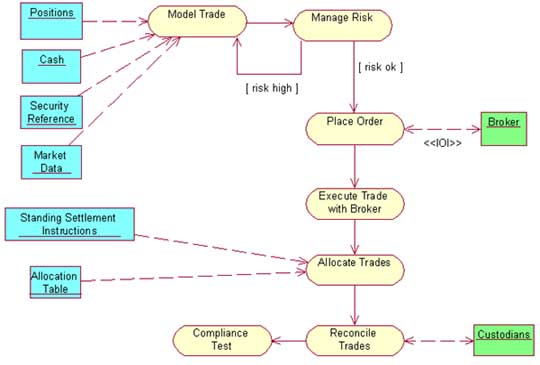Since modern firms are often constrained financially, it is vital for them to seek external funds so as to expand innovative industries, thus making innovation as a very key and important part of future corporate success. Welch (2011) using micro data, illustrate that access to finance matters for entry of uprising and small firms helps expansion of new firms following successful initial investment. Welch stresses that modern firms most often faced tighter financial constraints. Grenadier and Malenko (2011) from their study found that for a larger percentage of United Kingdom firms, the financial difficulties they faced were essential for young firms and states that these firms “are more prone to facing asymmetric information problems”. When a measure of negative correlation between market power and bank distress was taken, it showed that banks that have higher shares of cross-border assets have a larger market power at home.

Grenadier & Malenko (2011) notes “there has been an increase in financial market sophistication leading to a constant change and increase in competition therefore Innovation and the development of new products is a core factor that is important in the development of the finance industry.” In regards to the Islamic finance industry, they are faced by critical issues which involve new product development and Sharia compliance. A major challenge faced by the Islamic finance industry is refusal by the United Kingdom to apply Sharia law in disputes since they follow the New York law while Islamic finance industry complies with the Islamic law when carrying out business transactions. Another challenge facing the Islamic finance industry is the lack of scholars with financial experience and also a scarcity in skilled professionals in the Islamic finance sector. Also policies that find supply effects in corporate finance have been suggested by topical developments in asset pricing in combination with opportunistic executives. In most recent times due to a change in investor preferences and limited intermediation, capital supply independently varies from corporate fundamentals.
Another issue in corporate finance is capital budgeting given that the practical manifestation of value maximization is to recognize and invest in positive NPV undertakings. A difference occurs where the hurdle rate used by the firm manager in deciding whether to accept or decline a project and the cost of capital which is measured by the expected return demanded by shareholders. Usually the hurdle rate is higher and this proves that firms fix their capital budgeting hurdle rate higher than the expected return demanded by shareholders. In corporations nowadays, firm managers are delegated decisions by the owners. Scores of empirical corporate finance centers on the sources of demand in capital, not supply. This has changed most recently.
There are numerous challenges facing corporate finance. Firstly, there are not many actual arbitrage limitations that would let third party groups to compel rational behavior against non-value optimizing corporations. Secondly, managers use toxic drugs and spread out boards as mechanisms to segregate themselves from aggressive external influences. Grenadier & Malenko (2011) notes “the value consequence of poor corporate policies is usually less than takeover premium needed to unseat management even when not in place.” This illustrates that the Darwinian selection is weak. Another constraint facing the corporate finance is that; the data frequency in corporate finance is often moderately low though there is a huge capacity of firms in the cross section with the most common being annual data. “Also the financial statement data from the final fiscal year of firms is hardly available when they disappear mid year (on average after 10 years. This results to survivorship biases” (Grenadier & Malenko 2011).
Currently corporate finance has faced several challenges and has been affected by modern issues worldwide.This is due to economic changes inclusive of inflation which has had a huge effect on corporate finance globally.
References
Grenadier, S. & Malenko, A. (2011). Real Options Signaling Games with Applications to Corporate Finance. Review of Financial Studies, Rock Center for Corporate Governance at Stanford University Working Paper No. 57 1-57.
Welch, I. (2011). A Critique of Recent Quantitative and Deep-Structure Modeling in Capital Structure Research and Beyond. AFA 2011 Denver Meetings Paper, 1-45.